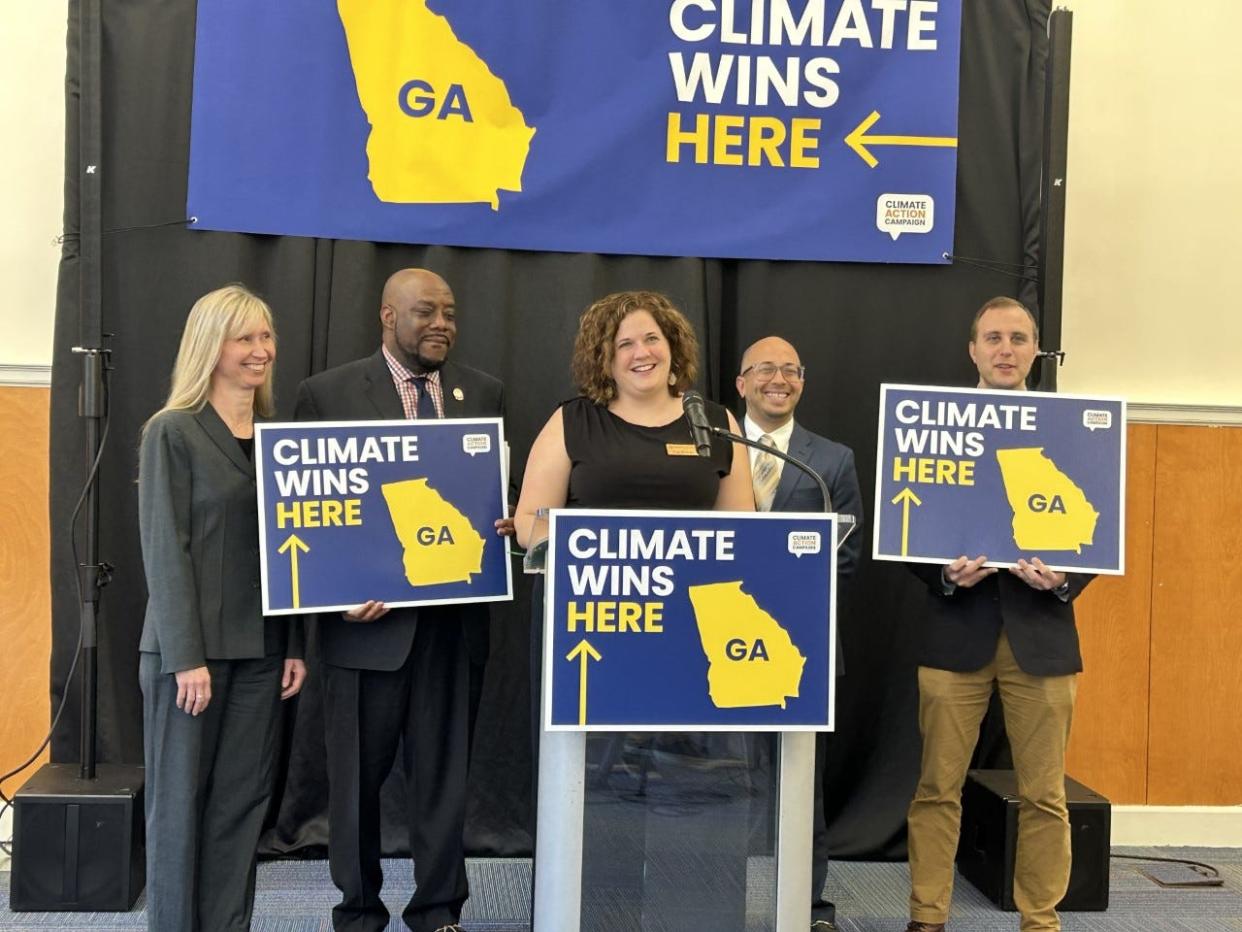Savannah's transition to clean energy celebrated, offered as a model to follow

Whether it's the Bryan County Hyundai mega site or a new electric vehicle in the city's municipal fleet, Savannah is quickly going green.
City leaders and local climate advocates recently met at a Climate Action Campaign event to celebrate how federal funding from the Inflation Reduction Act and the bipartisan Investment and Jobs Act are making Savannah a statewide and regional leader in clean energy.
Climate Action Campaign is a coalition of a dozen major national environment, environmental justice and public health groups advocating for a quicker transition to clean energy and sustainability.
"Savannah is the epicenter of climate resilience, not only in Georgia but across the Southeast," Savannah Mayor Van Johnson said. The city's initiatives, such as the 100% Savannah campaign to have all energy consumed in the city sourced from clean renewables by 2035, make Savannah a model for an equitable transition to clean energy.
Background: How the Inflation Reduction Act's climate change provisions may impact Georgia emissions
EV news:Georgia DOT submits electric vehicle infrastructure plan to get federal funding
For the children, improvements on campus
Communities at large are impacted by climate change through floods, poor air quality and increasing temperatures, and children are no different.
Denise Grabowski, District 1 representative and vice president pro-tem of the Savannah Chatham County School Board, said that in December the district received a U.S. Environmental Protection Agency Clean School Bus Grant award of more than $9.8 million. With that money, she said the district will swap out 25 diesel buses with electric buses.
"We also know that asthma is one of the No. 1 reasons why students miss school, and if you're not in school then you can't learn," Grabowski said. Diesel school buses contribute to poor air quality for students as well as faculty and staff, which the new electric buses will help alleviate.
Beyond the buses, Grabowski said the school district is transitioning its police department vehicles to electric, installing LED lights and solar panels at its facilities.
More on buses: Feds award Savannah-Chatham schools nearly $9.9 million to purchase electric school buses
Kids' climate: Mercer Middle students learn about climate resilience in after-school pilot program
Statewide leadership from the coast
"What we're doing ... in Savannah is being replicated all across our state," District 4 city Alderman Nick Palumbo said. The weekend before this event, Palumbo said the city of Columbus, Georgia gathered to consider taking a 100% clean energy pledge modeled after Savannah's plan.
Johnson also noted the opportunity for Savannah to explore how the city's clean energy transition can be aimed at equity.
In a city where there is a significant number of low-income neighborhoods and people living in poverty, he said that electricity prices can be a huge burden. Johnson said the city can focus in on how electrification and its clean energy savings can benefit those struggling the most with rising energy prices.
With the arrival of the Bryan County Hyundai site, which will produce all-electric vehicles, Johnson said the region is also going to see an influx of sustainable, good-paying jobs.
Savings from the sun
"Saving taxpayer money is not a partisan issue," Palumbo said. The money saved on solar panels is only going to increase as energy prices rise by about 12% over the next three years, per Georgia Power's rate case with the Public Services Commission.
AJ Jeanty, a solar consultant with Live Oak Energy Systems, said that the news about the Hyundai site, rising interest in electric vehicles and continued development in the solar sector are all prompting individuals to look into residential solar options.
Under the Inflation Reduction Act, Jeanty said 30% of the cost of a solar system will be credited against households' federal tax liability, reducing the cost for homeowners to get their own solar systems. He said that businesses could get a bigger bang for their buck under this new policy.
This article originally appeared on Savannah Morning News: Climate Action Campaign and city of Savannah federal funding noted

